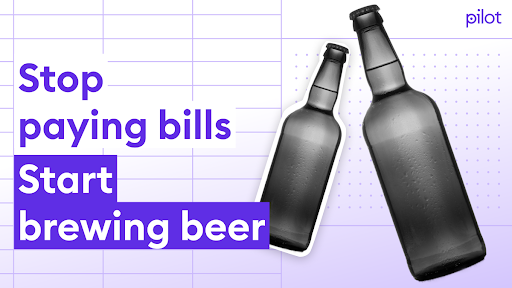5 things startups should add to your end-of-year checklist

The last quarter of the year is a crucial time for every business.
Apart from closing deals and the final sprint toward hitting your annual revenue goals, many businesses are also preparing for the upcoming tax season, planning for the year to come, and laying the groundwork for next year’s budget.
Though it’s important for everyone in your organization to be thinking ahead, there are a handful of common mistakes that can easily undermine your efforts or even put you behind the eight ball.
Here are five tips about what to include in your EOY financial checklist so you can avoid last-minute scrambles and hassles once the new year begins.
1. Annual Planning & Budgeting
While there is no shortage of action items that need to be crossed off of your to-do list, the annual budgeting and forecasting process should be a key priority for your business in the fourth quarter.
Don’t push budgeting or forecasting to the new year. Delays cause teams to lose valuable time and critical work gets deprioritized. Having a strong plan is essential for the success of your business.
We have a complete guide on the annual planning and forecasting process, including downloadable for headcount, budgeting, and more.
Get the annual planning playbook here →
2. Close Your Books
It’s best to close your books at the end of every month. For bookkeepers and tax preparers alike, the end of year is a busy time and waiting to close your year end books without monthly books prepared can cause problems. Especially since you will also need to prepare for the upcoming tax season.
Even if you typically close your books by the end of year but haven’t done so just yet for the most recent quarter, it’s definitely better to step up your startup’s bookkeeping and get everything squared away on a more regular basis.
Bonus points if you’re in communication with your tax preparer year round. Taxes are more than a simple compliance issue with endless room for error and potential penalties and fines. The beginning of the new year starts your tax preparer’s busiest season so maintaining open communication throughout the year will make for a smooth tax season ahead. Trust us.
3. Don’t send W-2 and 1099 forms out too early
Timing is everything when it comes to sending out W-2 forms to employees and filing a 1099 form for vendors, contractors, and freelancers. Aim for January 20th to get W-2s and 1099s out the door.
Sending these tax documents out too early can create hassle for you or your human resources team, especially if important changes need to be made and shared with the Internal Revenue Service.
As a reminder, employers do not need to send 1099 forms to international contractors who performed all of their work outside of the country and aren’t U.S. taxpayers.
Read our explainer on how to file 1099s here →
4. Communicate New Workplace Policies
Regardless of what you decide to do with regards to things like benefits, it’s important to think through these issues carefully, do your research, collect feedback from employees, create a detailed plan, and communicate any changes clearly. You must give employees time to understand their new benefits or digest new workplace policies or you run the risk of losing trust of your employees or causing backlash.
5. Ensure payroll and employee tax documents are up to date
Save yourself and your employees a headache by keeping your systems up to date. If a remote employee updated their home address from California to Colorado, but you didn’t update that person’s work location in your payroll system the person is still classified as a California employee and the applicable taxes from that state are also being withheld. In this case, the employee may be told to pay state taxes twice in California and Colorado, if the employee files a non-resident tax return for California and a resident tax return for Colorado.
Final thoughts
Striking a balance between budgeting, forecasting, and tax preparation priorities at the end of the year can be challenging, but getting some guidance and taking action quickly can make a big difference.
Pilot provides the most reliable accounting, CFO, and tax services for startups and small businesses. We partner with thousands of companies to help them grow sustainably and operate more effectively. Contact Pilot’s dedicated team of expert professionals for additional help today.





